How world-class athletes are turning to the power of AI and data
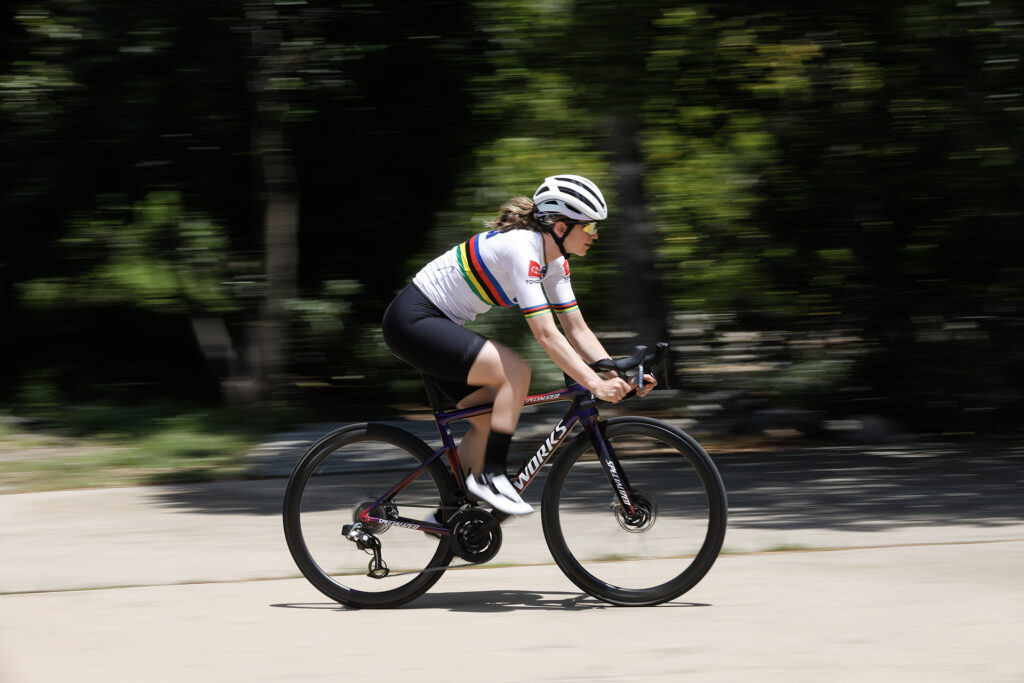
While training for the Paralympics, self-proclaimed data nerd Samantha Bosco wore a sleep tracker, logged her macronutrients and meticulously analyzed her performance data. Already a champion cyclist with years of experience, she used AI to find even more ways to improve her performance, from researching mobility exercises to reading tips for better sleep.
Her embrace of digital technology became part of the routine that helped her win a gold medal at the 2024 Paris Paralympic Games.
“The analytics helped with really fine-tuning those little things that add up,” Bosco says. “It kept my motivation up and reminded me of why I’m tracking the data in the first place.”
Analyzing data is just one part of a technology project that Bosco and other elite women athletes are doing to help improve their well-being, performance and careers. They learned how to use Microsoft tools for research, data analysis and more with expertise from Parity, a sports marketing and sponsorship organization focused on closing the gender income gap in professional sports. The company connects women athletes with high-profile brands, including Microsoft.
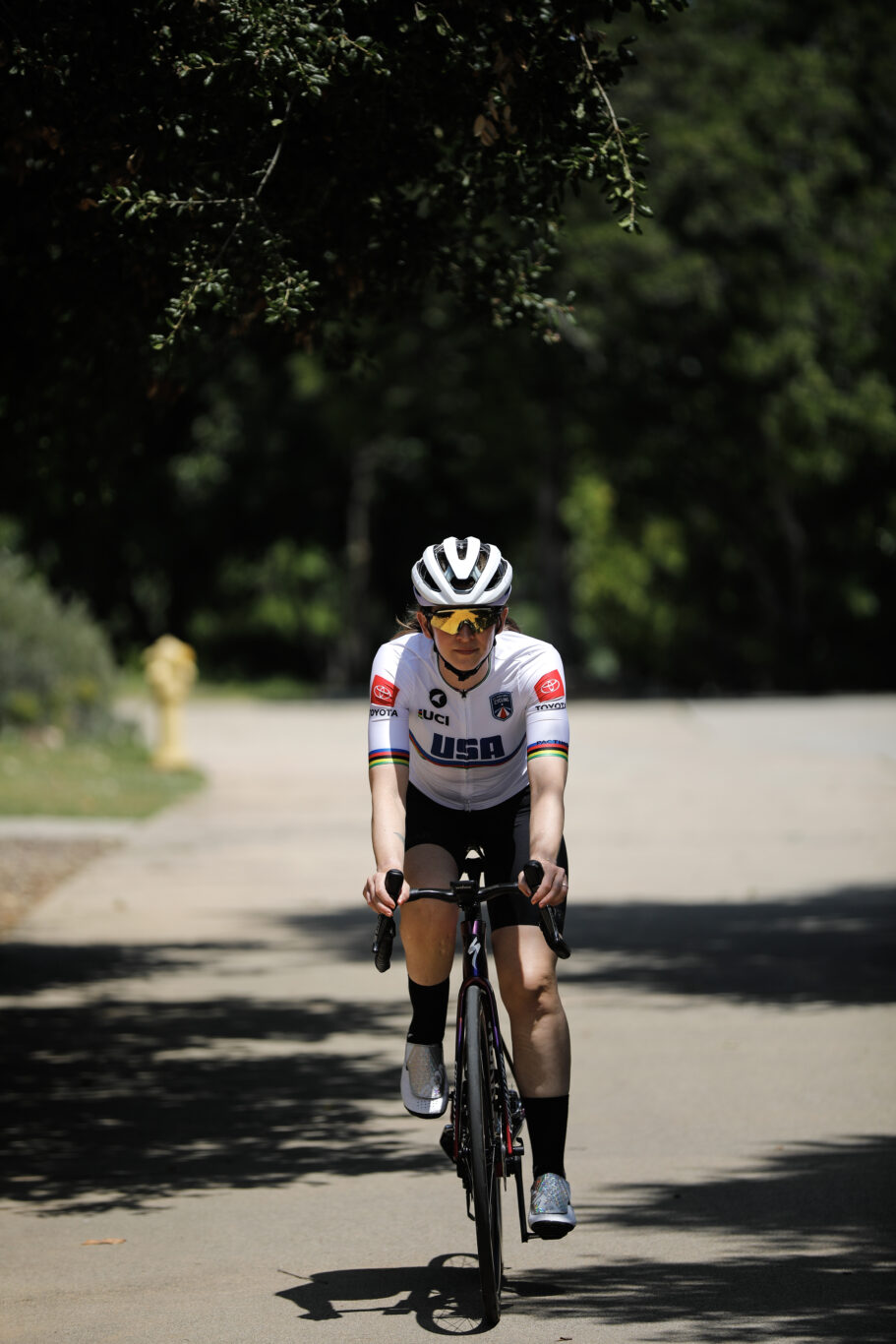
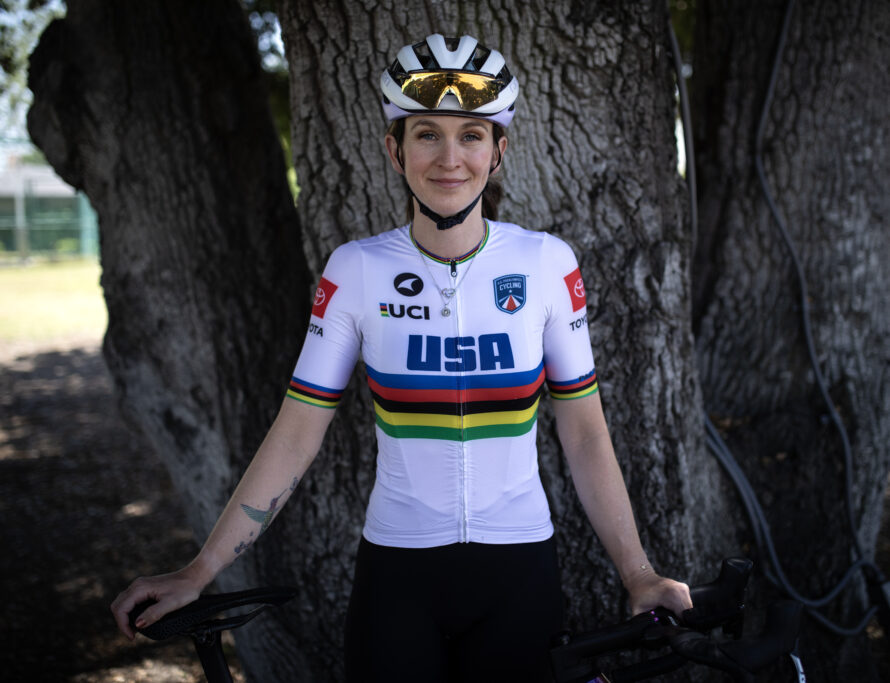
“Generative AI has the ability to democratize access to a lot of capabilities like data analytics that have been fairly expensive to access, and things that are expensive to access are typically not available to women athletes,” says Phillippa Thomson, chief data scientist at Parity. “Microsoft is an amazing partner, in that we’re very aligned in how we think about equity in sports.”
In training for the Paralympics and Olympics, the four athletes involved in the project were already tracking performance data with their coaches, so Thomson helped them analyze things outside the gym: sleep, nutrition, mood and self-care. She analyzed their data with Microsoft Excel, while they made their busy lives easier with Microsoft Copilot, an AI tool they’re still using today.
“The benefit of this particular project is that the barrier to start using data with Microsoft products is very low, because they’re designed to be accessible to a lot of people,” she says.

Samantha Bosco
In addition to tracking data, Bosco used Copilot to get the most out of the Paris Games, asking it for restaurant recommendations and tattoo ideas to honor the moment — a huge comeback after she qualified for the 2020 Tokyo Games but couldn’t go due to a serious cycling accident.
Now enjoying a season off the bike, she’s looking ahead to the 2028 Paralympics and excited to do more with data and AI. She wants to measure her sweat and blood sugar, and try Copilot in Excel, despite already being a spreadsheet expert with a master’s degree in accounting.
“It was like having my own personal assistant, which can take off the stress of having to figure things out yourself,” she says. “I think there are a lot more opportunities to explore, and I’m looking forward to using Copilot to help track new data and see if it can find trends faster for me.”
Her goals as a Paralympian aren’t just about being an athlete but also an advocate for people with disabilities. Born with a bowed tibia, she had several surgeries to address the condition that left her with a shorter, atrophied leg. She spent three years on crutches as a child and developed her love of cycling and competing through bike rides with her dad.
“I feel the most at home and capable when I’m on my bike. It makes me feel the strongest,” says Bosco. “My parents were really big on not letting my disability define me, so I feel like I’m an advocate by showing people that they’re capable of so many things.”
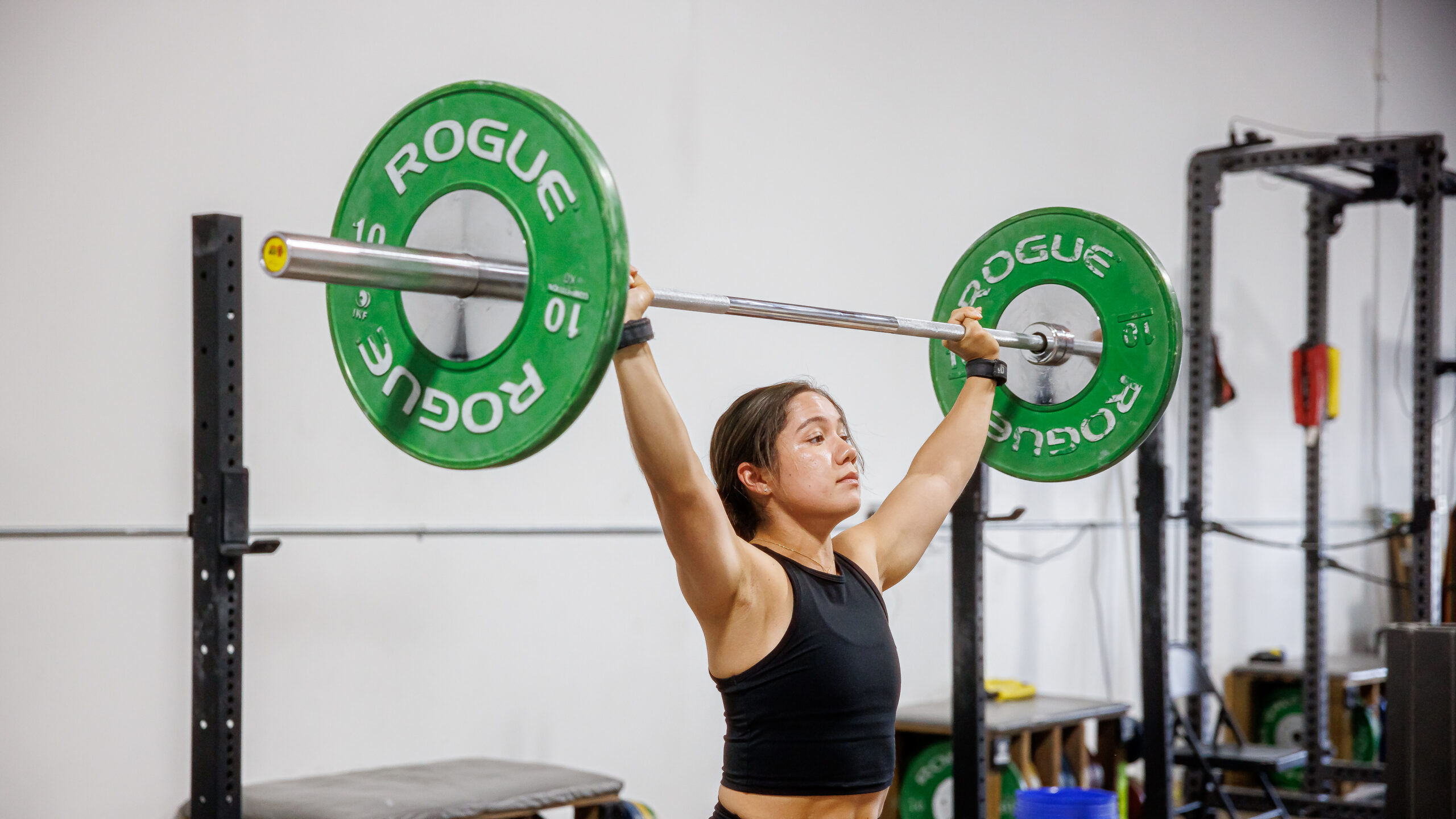
Jourdan Delacruz
For weightlifter Jourdan Delacruz’s second trip to the Olympics, she tracked sleep and well-being as part of a holistic way to improve performance, which included working on mindfulness and nutrition. She used Copilot to find recipes to refuel her body after long training days.
“I would say, ‘Give me high-protein dinner ideas that are sports dietitian-approved’ for very specific results, so I don’t get a million dinner ideas,” says Delacruz, who lifted a combined 195 kilograms (nearly 430 pounds) and placed fifth at the Paris Games. “It’s fun to explore, because I feel like I get in a rut with dinner.”
She’s now focusing on the business side of her career and using Copilot to generate ideas for her resume and social media. A registered dietician student, she started the platform Herathlete to support women athletes with evidence-based sports nutrition and performance information. She wants to address issues like menstrual cycles and bone density and says data analytics is important for keeping athletes safe and healthy.
“Having more women in STEM and sports science means we can study more of these topics,” says Delacruz, who wants to be a role model for all women.
“I hope I’m inspiring girls and women to try strength-based sports,” she says. “Even if you don’t want to do weightlifting full-time, it’s great when a woman is stronger.”
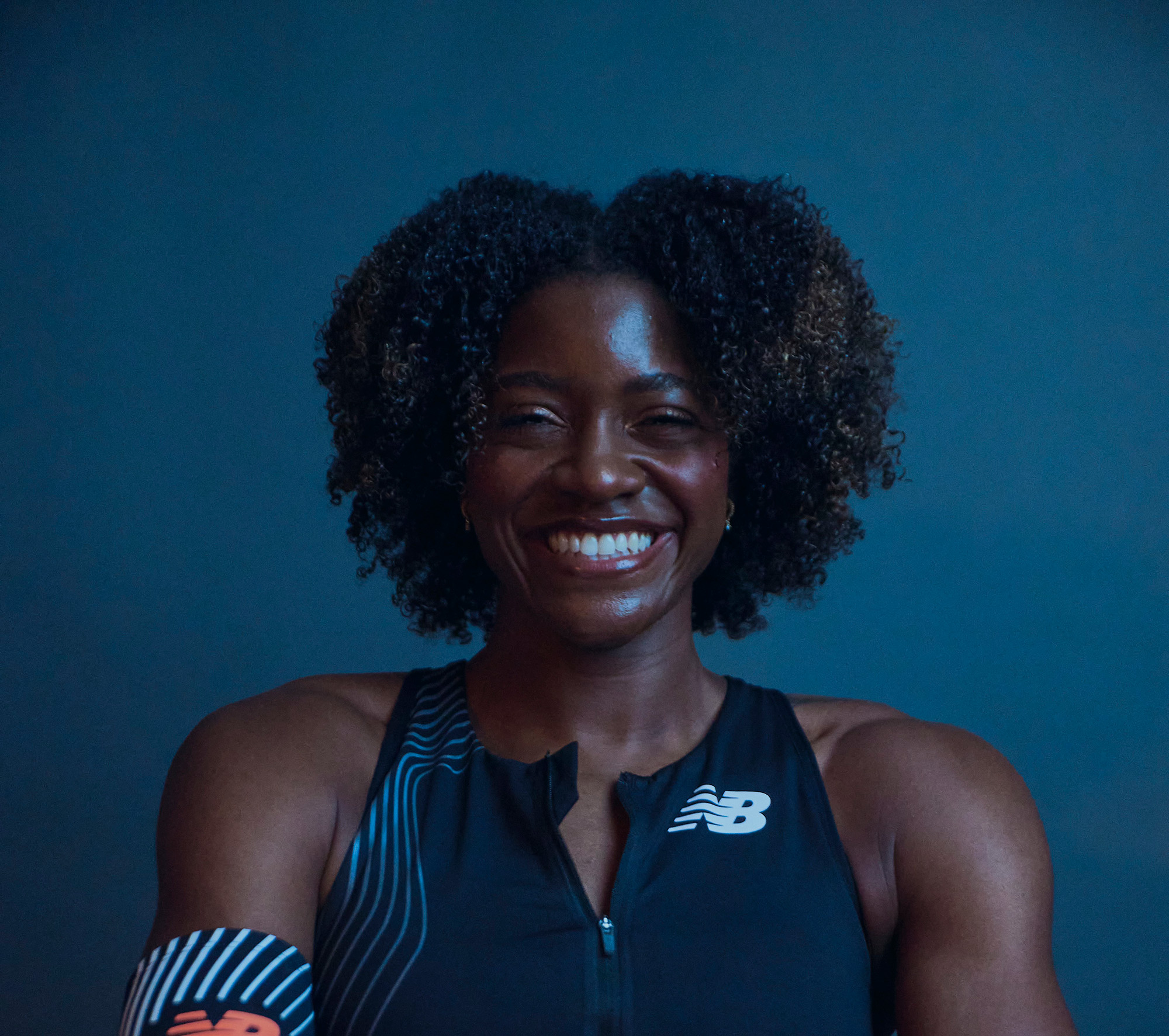
Kendall Ellis
Two-time Olympian and 400-meter sprinter Kendall Ellis has talked openly about her anxiety, which emerged in childhood as panic attacks before races and often involved negative self-talk.
But using data to analyze her mood and time spent sleeping, using social media and being with friends has helped her reinforce good habits for mental health, including connecting with loved ones.
“As an introvert, I do like spending time alone, and often we’re told as athletes that anything outside of our sport is a distraction,” says Ellis, who competed individually in Paris and won gold and bronze relay medals at the Tokyo Games. “But I also enjoy hanging out with my friends, and it’s nice to have the data to support that. I think the brain loves a logical response to things.”
She now spends less time on social media and makes a point of seeing friends before a competition, when she often feels anxiety rising despite being ranked among the world’s best athletes. The changes have helped her feel more confident and enjoy her sport more, which includes achieving her personal best of 49.46 seconds this year.
“The data gives me support to lean into the things I enjoy and that helps me go into competition with a clear head and a happy space,” says Ellis, who is getting ready to train for the 2025 World Athletics Championships in Tokyo.
The Parity project helped her be more comfortable around AI: One of the first things she did was ask Copilot how to use Copilot. She also asks the AI tool for content ideas for her social media, making the creative part of building her following easier when she feels stuck.
“As someone who was a little resistant with AI, I’ve found that Copilot has shown me the convenience of having a fast answer to my questions and helpful feedback to my creative blocks,” she says.

Skyler Espinoza
Tandem cyclist Skyler Espinoza was initially skeptical of tracking her well-being data as she trained as a guide for the Paris Paralympics. Her performance was already heavily measured and the idea of tracking more data felt stressful.
But working with Parity allowed Espinoza to customize the metrics she wanted to analyze, such as resting heart rate, mood and time spent at home or on the road. She also tracked the words she used when journaling notes in Excel about daily things like having a nice dinner or walking in the sun.
After seeing her trend of lower moods when she traveled, she became more intentional about self-care, like packing a nutritious dinner for a long flight or spending time in nature. The data also gave her a long-term view of her well-being and reaffirmed her decision to take a break from the high-pressure world of elite sports after the Games.
“I feel so grateful that we went to Paris, and I got to have that experience,” says Espinoza, who competed as an able-bodied guide for tandem partner Hannah Chadwick, who has a visual disability.
“With the tracking journey and looking back on the highs and lows, I’m feeling really confident in the decision to step away from this level of competition,” she says. “I will forever treasure my Games journey, and I think the data project was very helpful for that self-reflection.”
Espinoza is building a sports community through her writing and is interested in exploring Copilot for things like drafting content, planning trips and finding recipes. Earlier this year, she asked it for help on a post about supporting teammates after the para-cycling world championship. She and Chadwick had had strong performances but had to compete against their teammates, a difficult part of international events. Copilot helped Espinoza create a compassionate post on a tough topic.
“I’m still learning about AI, and I’m definitely curious about using it as a tool for creativity,” she says.
Photo of Delacruz by DV Photo Video; photo of Ellis provided by Ellis; photo of Espinoza by Jim Gensheimer. This story was published on Dec. 17, 2024.

